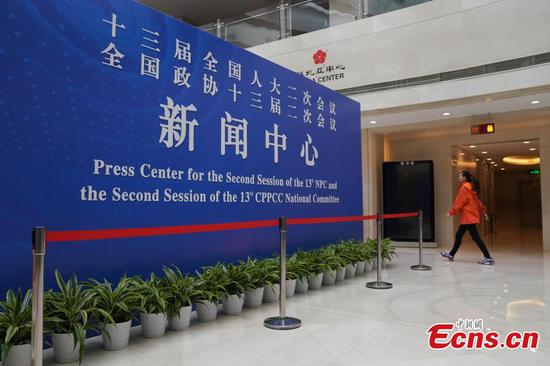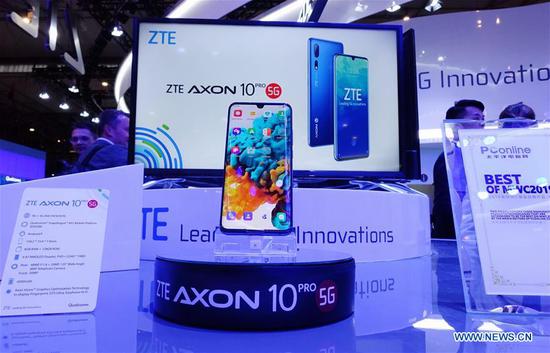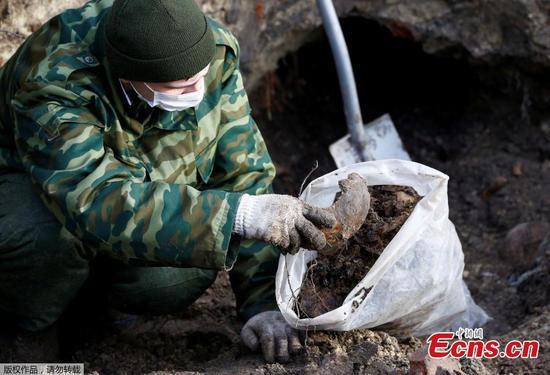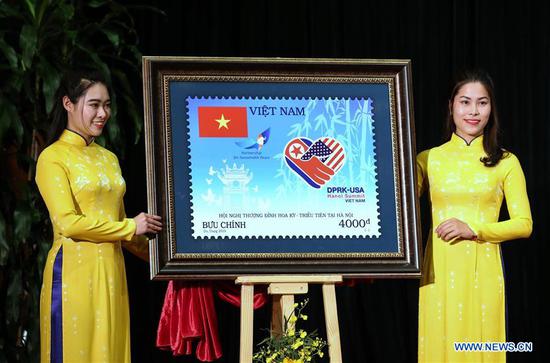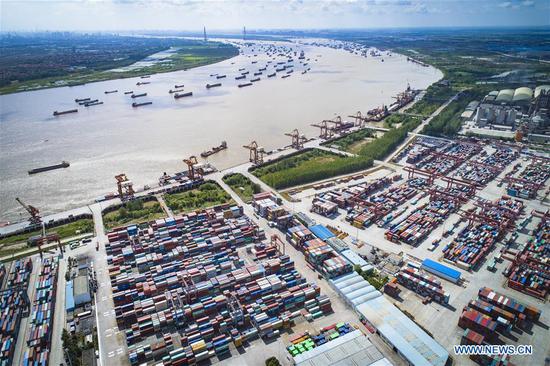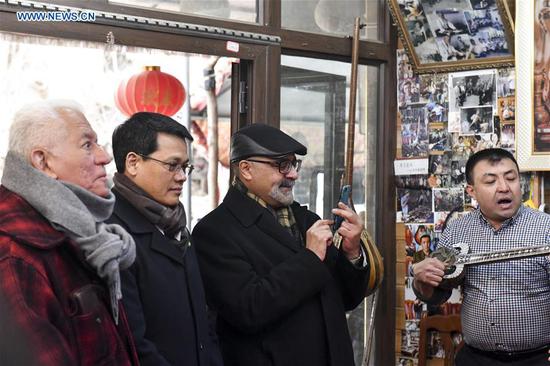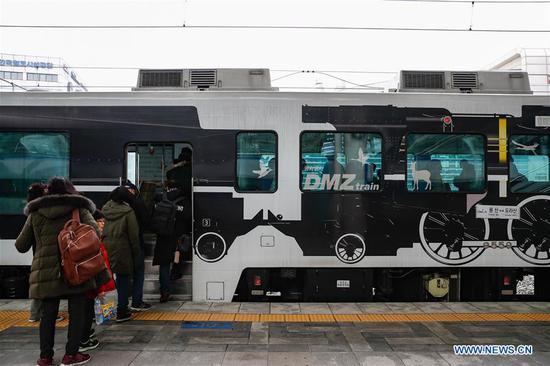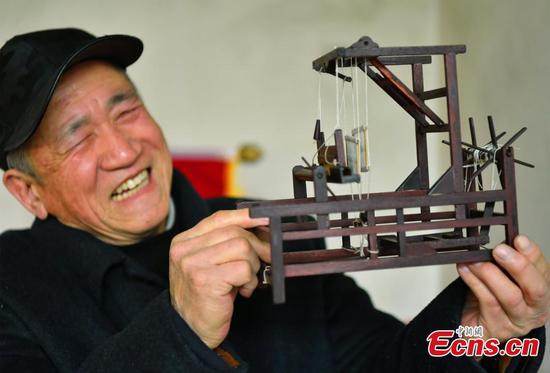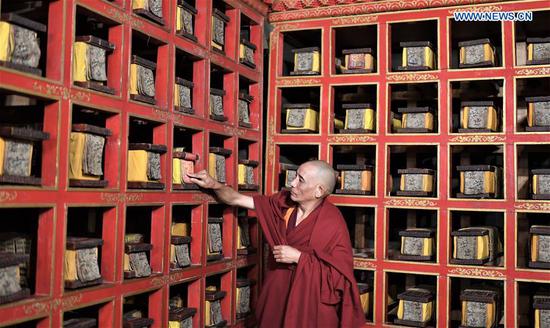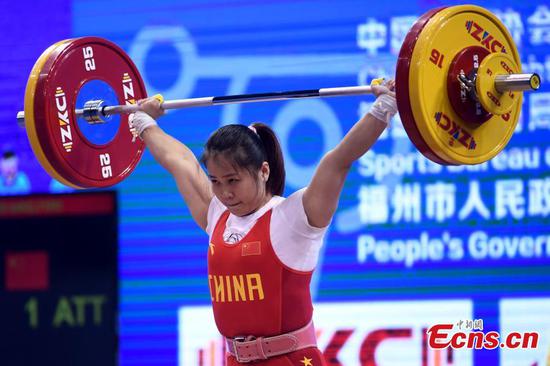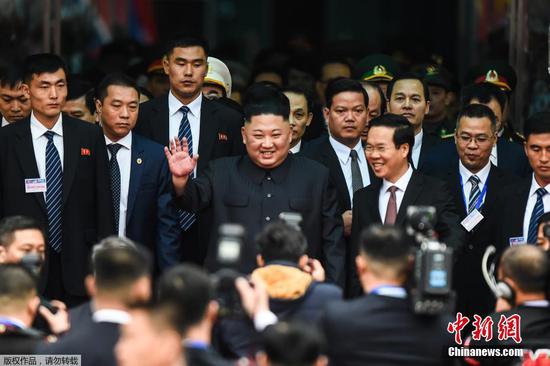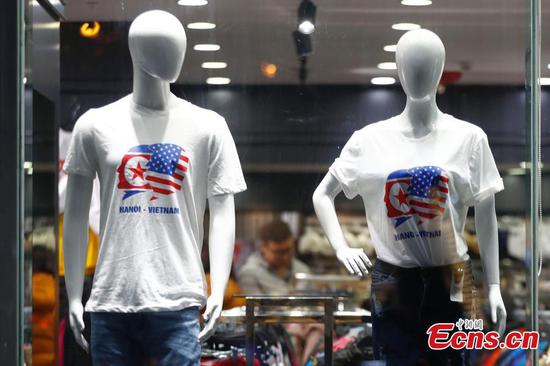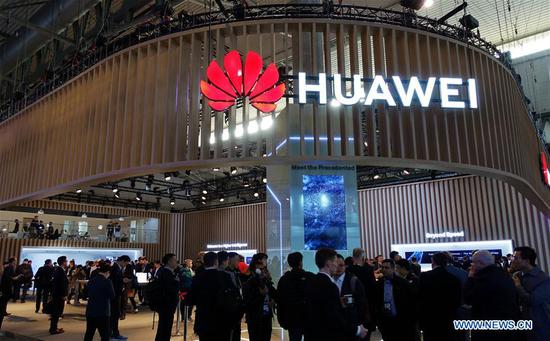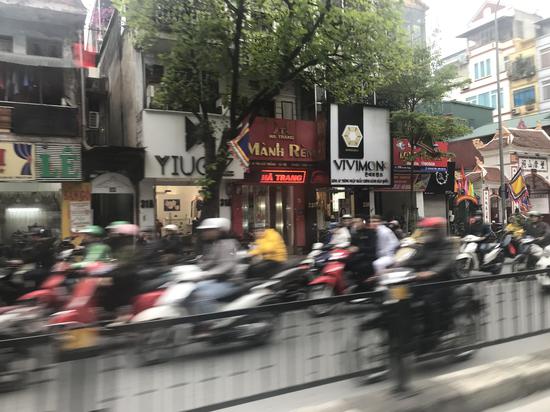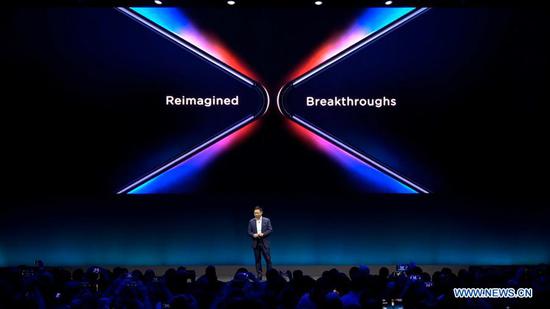Hard facts undermine scaremongering headlines
Leading Chinese mobile phone manufacturer Huawei has hit the headlines in the British media previously after United Kingdom Defense Secretary Gavin Williamson and MI6 chief Alex Younger questioned whether its equipment should be allowed in the UK networks.
Despite the media furore, however, Huawei's UK business is thriving and that will remain the case for the foreseeable future. Behind the apparently hostile remarks by Williamson and Younger, no official ban or restrictions has been imposed by the British government on Huawei's UK activities.
The British media has been quick to point out that national mobile network supplier BT is removing Huawei components from its networks, but that is again a selective misrepresentation of the truth. In reality, because BT already uses Huawei equipment extensively for its radio access networks, it decided to diversify risks by removing Huawei components from the core networks it acquired from a rival network, EE, back in 2016.
BT has since clarified that Huawei "remains an important equipment provider" and that its removal of Huawei equipment is due to procurement policy only, and has no links to security concerns.
So it seems that despite the bans on Huawei in the United States and Australia, the company's collaboration with BT and Vodafone across all major British cities remains business as usual.
The reason for this is not simply because Huawei got lucky. A deeper look at Huawei's intricate British links suggest that it is highly unlikely that Britain would ever block Huawei, for three strong reasons.
Firstly, the UK government has deliberately taken a two-way communication process to review Huawei equipment's security issues. The UK government intelligence unit, known as GCHQ, runs a special Huawei laboratory in Banbury, Oxfordshire, with the task of hunting for security flaws in the company's own products. So far it has covered no evidence of hidden backdoors or other deliberate attempts of subterfuge.
In an interview with the BBC, a Cabinet Office spokeswoman said the government is working with Huawei to "ensure the UK can continue to benefit from new technology while managing cyber-security risks".
This demonstrates that the UK government is taking an evidence-based approach to assess Huawei's security practices. The fact that Huawei's UK board of directors includes Lord Browne, the former chief of BP, and Sir Andrew Cahn, a former high-ranking civil servant, further shows that communications channels between the British government and Huawei are open and smooth.
Secondly, Huawei's business interests are intricately linked with that of the wider British economy. Banning Huawei would not only make Huawei's 1,500 UK employees jobless overnight, but also inflict serious harm to many British firms in Huawei's procurement system, such as the Cambridge-based ARM, which designs the processors for Huawei smartphones sold across the world.
Perhaps Huawei also knows that its 2 billion pound ($2.55 billion) investment and procurement contracts in the UK have become a strong shield to fend off any unwelcome political sentiment, so the company announced in February 2018 that it will spend a further 3 billion pounds on British technology and services during the next five years.
Thirdly, Huawei has invested its corporate social responsibility money into educating young British IT talents, and in that process convinced them of its brand values too. It has established what is known as the Huawei Authorized Information Network Academy, or HAINA, in more than 10 British partner universities and colleges, where it shares some of its latest telecom equipment and knowhow to upskill the British IT talent pool.
The quality of HAINA training is so good that the HAINA certificate has become a trump card for young graduates looking for their first job in the IT sector, according to Yvonne Kelly, principal and CEO at Barking and Dagenham College.
In Kelly's opinion, partnering up with Huawei is not just about gaining cutting-edge Huawei equipment, worth tens of thousands of pounds and unaffordable to most schools, but furthermore the opportunity to hear from Huawei and identify where are the skills gaps in the telecommunications industry.
In addition to HAINA, Huawei has extensive research partnerships with British universities, including Imperial College, the University of Birmingham and the University of Reading. It is also a core industry partner of the University of Surrey's 5G Innovation Centre, the largest UK academic platform with ambitious goals to define the future of 5G infrastructure.
All these links suggest that Huawei and the UK's interests are aligned, and that banning Huawei is not a decision the UK government can afford to make for no solid reason.
Besides, discriminating against Huawei goes against the "open for business" value so central to the British economy. Even if not for Huawei's sake, the British government would not want to send out such a protectionist signal, especially as the looming cloud of Brexit makes it all the more pressing for the UK to enhance its open market signal.
Huawei is in the UK to stay, because it wants to and because it can. Yet the company should consider giving a more timely response the next time when it is caught in a media storm.
Proactively clarifying misunderstandings will reassure its industry partners and the UK public of its continued confidence and commitment, which in turn will foster smooth business operations.












